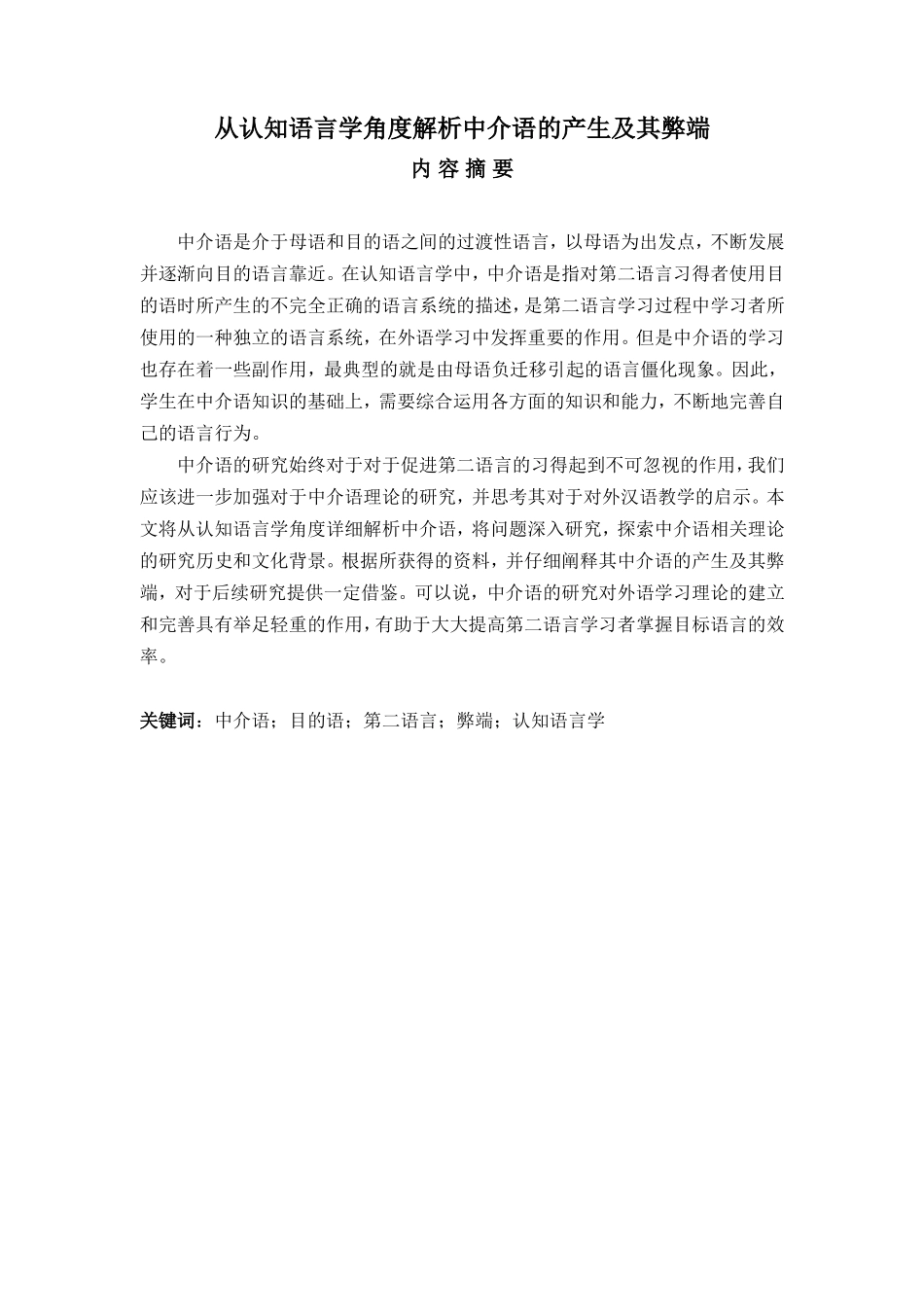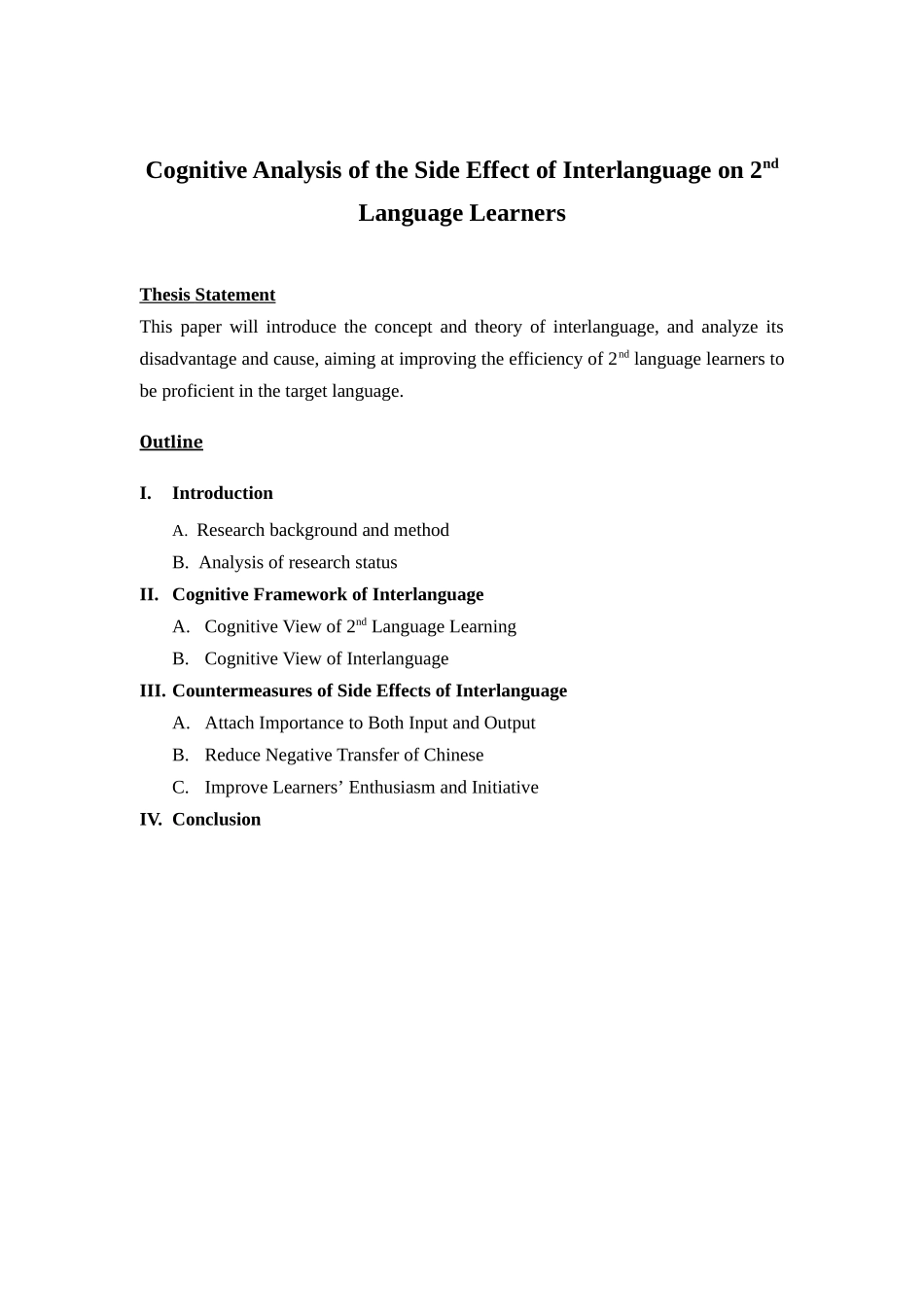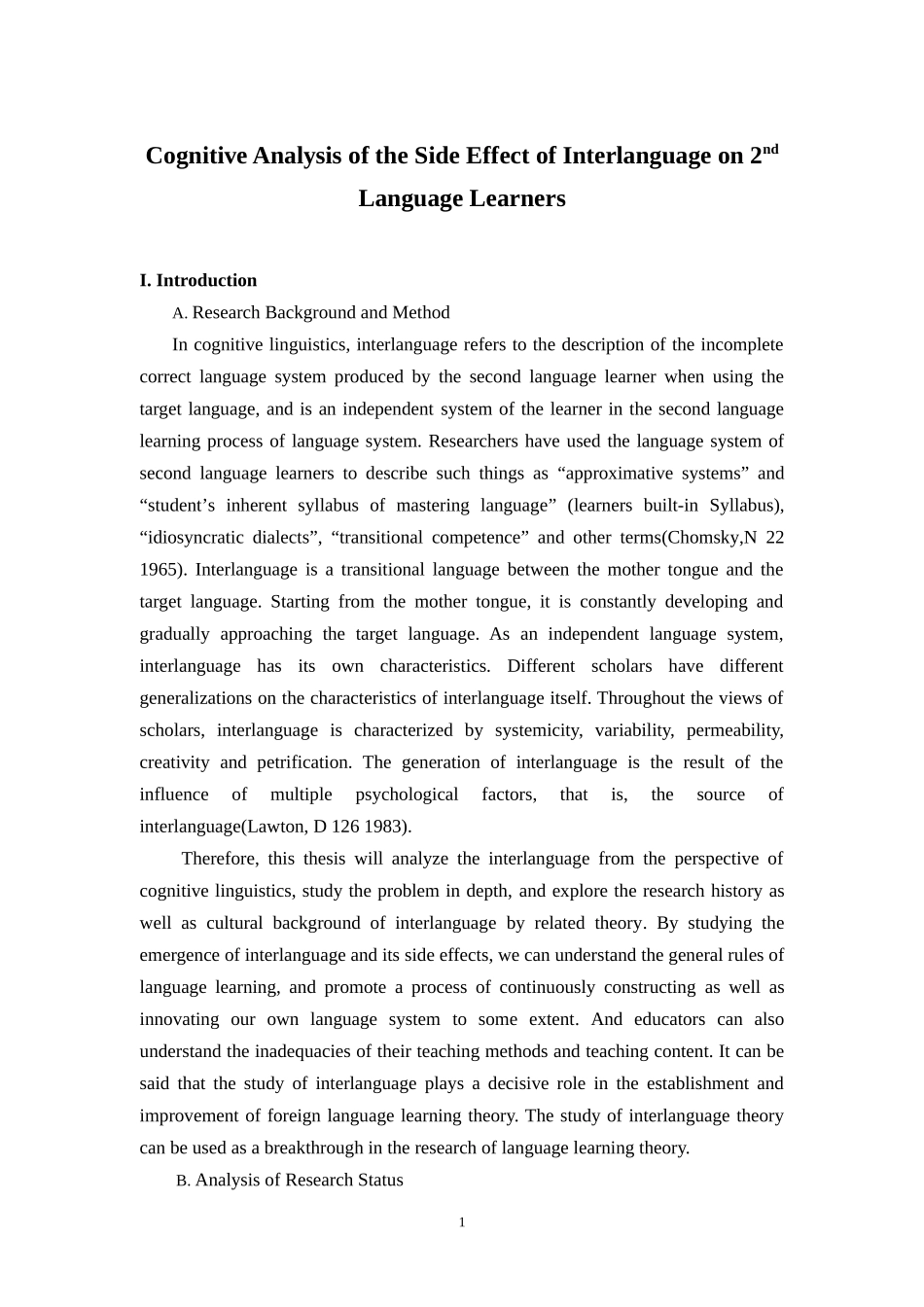从认知语言学角度解析中介语的产生及其弊端内 容 摘 要中介语是介于母语和目的语之间的过渡性语言,以母语为出发点,不断发展并逐渐向目的语言靠近。在认知语言学中,中介语是指对第二语言习得者使用目的语时所产生的不完全正确的语言系统的描述,是第二语言学习过程中学习者所使用的一种独立的语言系统,在外语学习中发挥重要的作用。但是中介语的学习也存在着一些副作用,最典型的就是由母语负迁移引起的语言僵化现象。因此,学生在中介语知识的基础上,需要综合运用各方面的知识和能力,不断地完善自己的语言行为。中介语的研究始终对于对于促进第二语言的习得起到不可忽视的作用,我们应该进一步加强对于中介语理论的研究,并思考其对于对外汉语教学的启示。本文将从认知语言学角度详细解析中介语,将问题深入研究,探索中介语相关理论的研究历史和文化背景。根据所获得的资料,并仔细阐释其中介语的产生及其弊端,对于后续研究提供一定借鉴。可以说,中介语的研究对外语学习理论的建立和完善具有举足轻重的作用,有助于大大提高第二语言学习者掌握目标语言的效率。关键词:中介语;目的语;第二语言;弊端;认知语言学Cognitive Analysis of the Side Effect of Interlanguage on 2nd Language LearnersThesis S tatement This paper will introduce the concept and theory of interlanguage, and analyze its disadvantage and cause, aiming at improving the efficiency of 2nd language learners to be proficient in the target language.OutlineI.IntroductionA. Research background and methodB. Analysis of research statusII. Cognitive Framework of Interlanguage A. Cognitive View of 2nd Language LearningB.Cognitive View of InterlanguageIII. Countermeasures of Side Effects of Interlanguage A. Attach Importance to Both Input and OutputB.Reduce Negative Transfer of Chinese C.Improve Learners’ Enthusiasm and Initiative IV. Conclusion1 Cognitive Analysis of the Side Effect of Interlanguage on 2nd Language LearnersI. IntroductionA. Research Background and MethodIn cognitive linguistics, interlanguage refers to the description of the incomplete correct...


